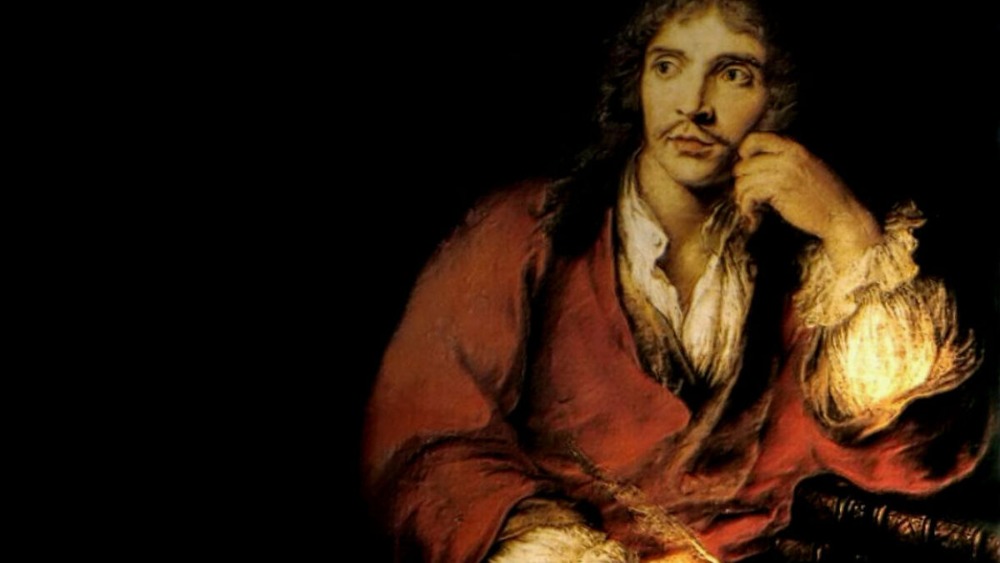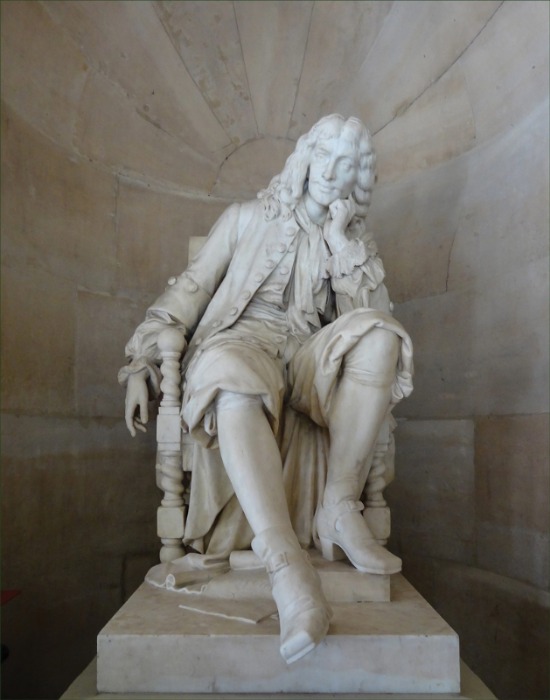
France celebrates Molière Year on the occasion of the 400th anniversary of the birth of the great comedian on January 15, 1622.
He is a basic name in universal theater, an actor and author who was surprised by death in the middle of the performance of The Imaginary Sick Man. Molière is forever associated with the vivacity and joy of a comedy troupe, wandering by nature until a powerful person deigns to sponsor it or take it into his service, as happened to our author with Louis XIV.
But the passage of time has made Molière more of a stereotype than a real person.He has sometimes been presented as someone opposed to the established powers, in particular the Church, which supposedly forbade the burial of comedians on sacred ground.
No document confirms this statement and in the case of Molière it was not true either. In spite of everything, the easy recourse is to consider the author of Tartuffe as an anticlerical and libertine.. In reality, Molière limited himself in this play to criticizing the hypocrisy of false devotions..
However, trying to distinguish true from false devotions always carries risks: many unbelievers are usually not interested in making such a distinction, since it forces them to qualify their judgments, and some believers are too suspicious and stubbornly think that their way of understanding the faith is the only acceptable one. In reality, neither position has the sense of humor embodied by Molière's life and work.

Molière (1622 - 1673) Comediographer born in France
The marquises, the doctors, the mocked husbands, the pedantic "precious" women... had been the protagonists of Moliére's satires, but they accepted these criticisms better than the religious hypocrites who fought to ban Tartuffe.
They did not want to admit, as the author states, that comedies have the purpose of correcting vices of the companyand that to love or not to love the stage is a matter of taste. Molière writes in his prologue to Tartuffe that there were fathers of the Church who liked the theater, and others did not.
To present a character almost always kneeling in the temple, between sighs and glances to the sky and the ground did not mean to attack religion. Highlighting the scrupulousness of someone who felt annoyed for having killed a flea by being distracted in prayer was not criticizing those who prayed.
Nor was it a sign of atheism to denounce the attitude of those who had improved their fortunes while exercising flattery and filling their lips with expressions about humility, grace and the goodness of heaven.
In addition, Molière in Tartuffe lambastes false humility, for he should be wary of those who consider themselves to be worthless and inwardly all sin and iniquity. But at the end of the comedy, Tartuffe, the hypocrite, will be unmasked because Orgon, his protector, hears him say what he really thinks.
Tartuffe is really only concerned with external scandal: "It is the scandal of this world that makes offense, and it is not a matter of sinning, but of sinning in silence.". It is an example of how the appearance of virtue can lead to the greatest vices.
It is no exaggeration to say that false virtue is usually related to a progressive loss of the sense of sin. False virtue is the daughter of lukewarmness.
Where there is no solid Christian virtue, the axis of the spiritual life is not the love of Christ, nor the love of Christ, but the individual who seeks himself by wanting to earn his salvation with a repertoire of devotions.
With the collaboration of:
Antonio R. Rubio Plo
Degree in History and Law
International writer and analyst
@blogculturayfe / @arubioplo